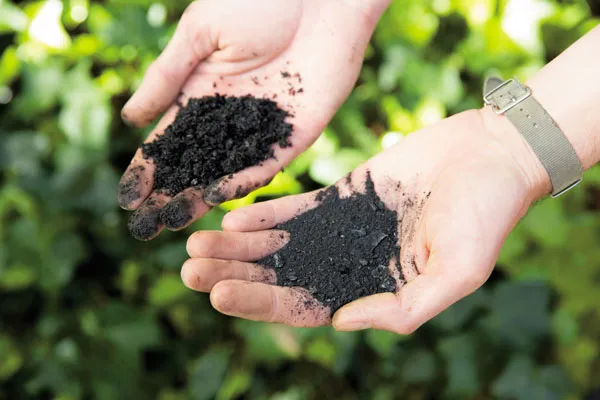
La crise silencieuse sous vos pieds : pourquoi vos petits-enfants pourraient ne pas cultiver la même terre que vous
Chaque seconde, l’érosion vole l’équivalent d’un terrain de football de



Introduction:
The evolution of modern agriculture has led to significant environmental challenges, including soil degradation, chemical runoff, and climate change. In response, sustainable farming practices have emerged, seeking to balance agricultural productivity with environmental stewardship. Among these practices, biochar has emerged as a promising innovation with the potential to revolutionize sustainable farming.
Evolution of Farming:
Traditional farming methods often prioritize short-term gains at the expense of long-term sustainability. However, the emergence of sustainable agriculture has shifted focus towards regenerative practices that promote soil health, biodiversity, and ecosystem resilience. Biochar represents a key innovation within this paradigm, offering a sustainable solution to enhance soil fertility, mitigate climate change, and promote agricultural resilience.
Introduction to Biochar:
Biochar, a form of charcoal produced through the pyrolysis of organic materials, holds immense potential for transforming agricultural practices. Unlike conventional fertilizers and soil amendments, biochar improves soil health by enhancing nutrient retention, water infiltration, and microbial activity. Its carbon-rich structure also serves as a long-term carbon sink, sequestering atmospheric carbon dioxide and mitigating climate change.
Advanced Applications:
Recent innovations in biochar technology have expanded its potential applications in sustainable farming. From biochar-based fertilizers and soil inoculants to filtration systems and environmental remediation, biochar innovations are increasingly diverse and sophisticated. These advancements hold promise for addressing a wide range of agricultural and environmental challenges while promoting sustainability and resilience.
Research Insights:
Scientific research and field trials continue to elucidate the efficacy and potential of biochar in sustainable agriculture. Studies have shown that biochar application can improve soil fertility, increase crop yields, and reduce greenhouse gas emissions. Furthermore, ongoing research is exploring the synergistic effects of biochar with other sustainable farming practices, such as agroforestry and cover cropping.
Future Outlook:
As the global demand for sustainable food production continues to rise, biochar is poised to play a crucial role in shaping the future of agriculture. By embracing biochar innovations and integrating them into farming practices, farmers can enhance soil health, increase agricultural productivity, and mitigate the impacts of climate change. The future of sustainable farming lies in the hands of those who dare to innovate and revolutionize agricultural practices for the betterment of the planet.

Chaque seconde, l’érosion vole l’équivalent d’un terrain de football de

Et si je vous disais qu’il existe un seul amendement